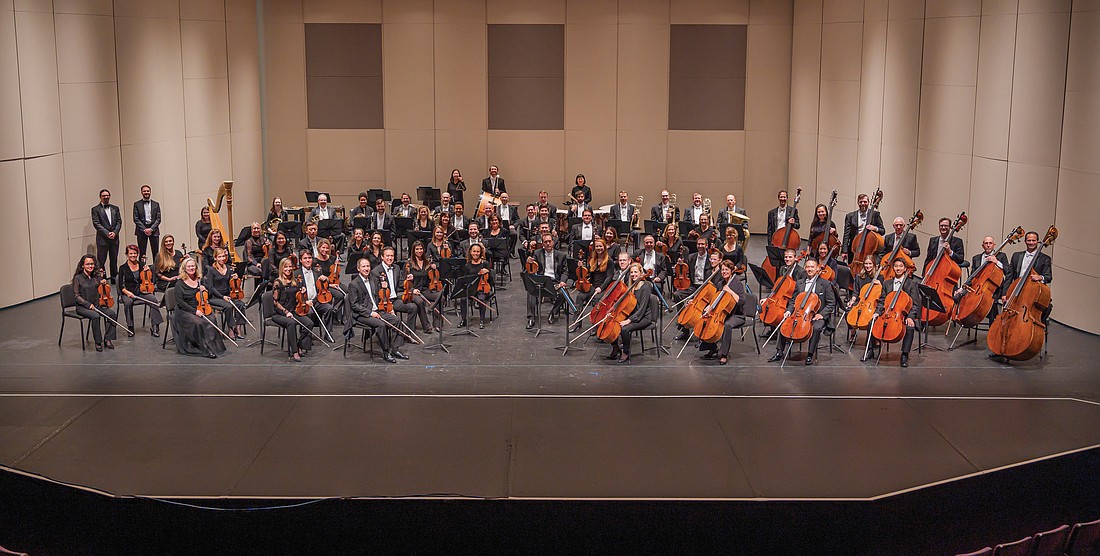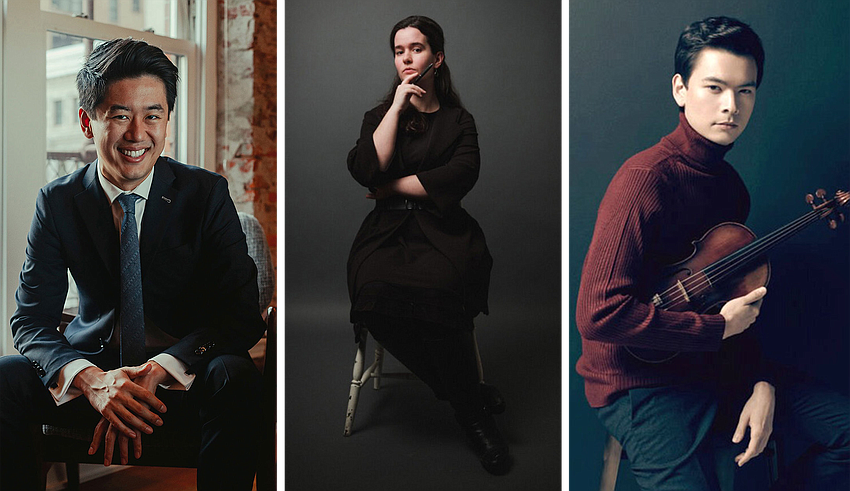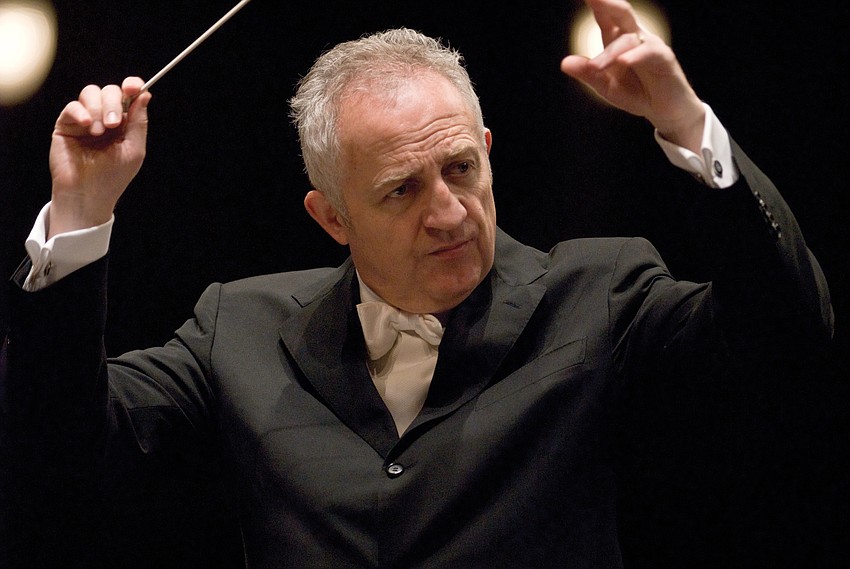- December 26, 2024
-
-
Loading

Loading

Throughout time immemorial, both music and language have been used to tell stories.
When combined, as in Sarasota Orchestra’s Guided Tours — the second and final of which is 7:30 p.m. on Feb. 24 at the Van Wezel Performing Arts Hall — it’s possible that something altogether new may emerge.
That may be some of what Bramwell Tovey was aiming for, in addition to providing a forum to help make classical music more accessible to newcomers, when he initiated the hybrid lecture/concerts as part of Sarasota Orchestra’s 2022-2023 season. Tovey was music director from September 2021 to July 2022 when he died before he could lead the orchestra through the season.
For “A Guided Tour: Copland and Stravinsky,” Maestro Kensho Watanabe will be conducting the full orchestra and hosting the evening along with participation from contemporary classical composer Jessica Hunt, and guest soloist Stefan Jackiw.
Watanabe muses that the guided tours could become part of Tovey’s Sarasota legacy. The two maestros were close, and the program was developed collaboratively.
“He and I would get together maybe once a year to talk about the repertoire I might want to do,” Watanabe says. Turns out they were thinking about the exact same thing – Aaron Copland's Symphony No. 3.
He explains that because Copland is considered the “Dean of American composers” his work provides a platform to springboard into the larger story of American classical music.
“We were late to the classical music world, and it’s exciting to realize that what an American composer is, or what American music should sound like, is still being defined,” says Watanabe.
All composers are influenced by those who came before and, in that light, Watanabe told Tovey he thought contemporary American composer Jessica Hunt’s “Climb” would be a great opener. The two also agreed that, because the music of Igor Stravinsky had a huge impact on Copland, that his “Violin Concerto” would round out the repertoire.
“Stravinsky was creating chaos in France with 'The Rite of Spring,' and other incredible works," Watanabe says. "Copland moved to Paris because he wanted to check out what that scene was like, and he ended up really discovering the classical music that was being created at the time. He brought that home and infused it with the tradition of American folk music, things he heard while he was growing up. In his Third Symphony, Copland fused all the influences that he had into this mammoth work.”
All that history is part of the story, or tour, of the music, Watanabe explains. “It’s my responsibility to weave a story or narrative so that both the musicians on the stage, and the people in the audience can all go on the same journey.”
He takes that responsibility very seriously – particularly when it comes to exposing newbie audiences to classical music.
“I have encountered too many people who are either intimidated or perhaps feel inadequately prepared to come and listen to a piece of classical music,” says Watanabe. “One of my missions in my artistic life is to convince them that this is not the case, and that there is something very special about encountering (the music) for the first time.”

However, the evening is not just for the uninitiated. Already-dedicated concertgoers will enjoy what can be looked at as a live, supersized version of the kind of context and perspective usually gleaned from program notes, or when notes are presented from the podium.
“People read the program or do a Wikipedia search before a concert to get a sense of what they will experience,” says Watanabe.
But guided tours are a novel setup, even for the conductor.
“I haven’t done anything like this exactly,” he says.
That doesn’t mean Watanabe isn’t ready, willing, and able. As assistant conductor with the Philadelphia Orchestra from 2016 to 2019, one of his favorite jobs was giving pre-concert talks.
"When I gave these lectures, most of the time I provided audio samples from the concert program to illustrate the narrative that I was trying to lay out for the audience," he says.
The same strategy applies to the guided tour, along with “the incredible added luxury of having live music performed by the orchestra, right there for the audience, to guide people through."
Concertgoers will also hear from the guest artists.
“Jessica (Hunt) will talk about her piece, and Stefan and I will discuss the Stravinsky," he says. "As a former violinist myself I know how difficult it is to play and bits are harder than others.”
Asked how the evening would be prepared, Watanabe says he will primarily rehearse the music for the longer form concerts on the 25th and 26th.
“(The music) is part of the larger program and that will be rehearsed without the narrative,” he says. Prep for the guided tour will center on transitions.
“I want (the musicians) to be familiar and comfortable with how to move from narrative to music.”
Gordon Greenfield, Sarasota Orchestra's chief marketing and communications officer, discusses the guided tours.

A guided tour was a pilot project that was initiated by our late music director, Bramwell Tovey, inspired by his desire to introduce people new to classical music and to some of the great works of art. By structuring the concert in a shorter format, with narration including insights and context, the goal is to make the concerts very accessible to everyone.
The intent of the format is primarily to welcome new audiences to explore classical music, but (it) is also informative for those with more experience in the genre.
We most certainly are hopeful a younger audience will be attracted to the format. The shorter length than traditional concert and the variety of musical segments mixed with narration for context is ideal for those experiencing classical concerts for the first time.
Performing arts organizations, by our very nature, are always looking to pilot new ways to connect with audiences and bring a contemporary context to timeless, great art. This format very much is designed to meet that goal of offering innovative approaches to enjoy the arts.